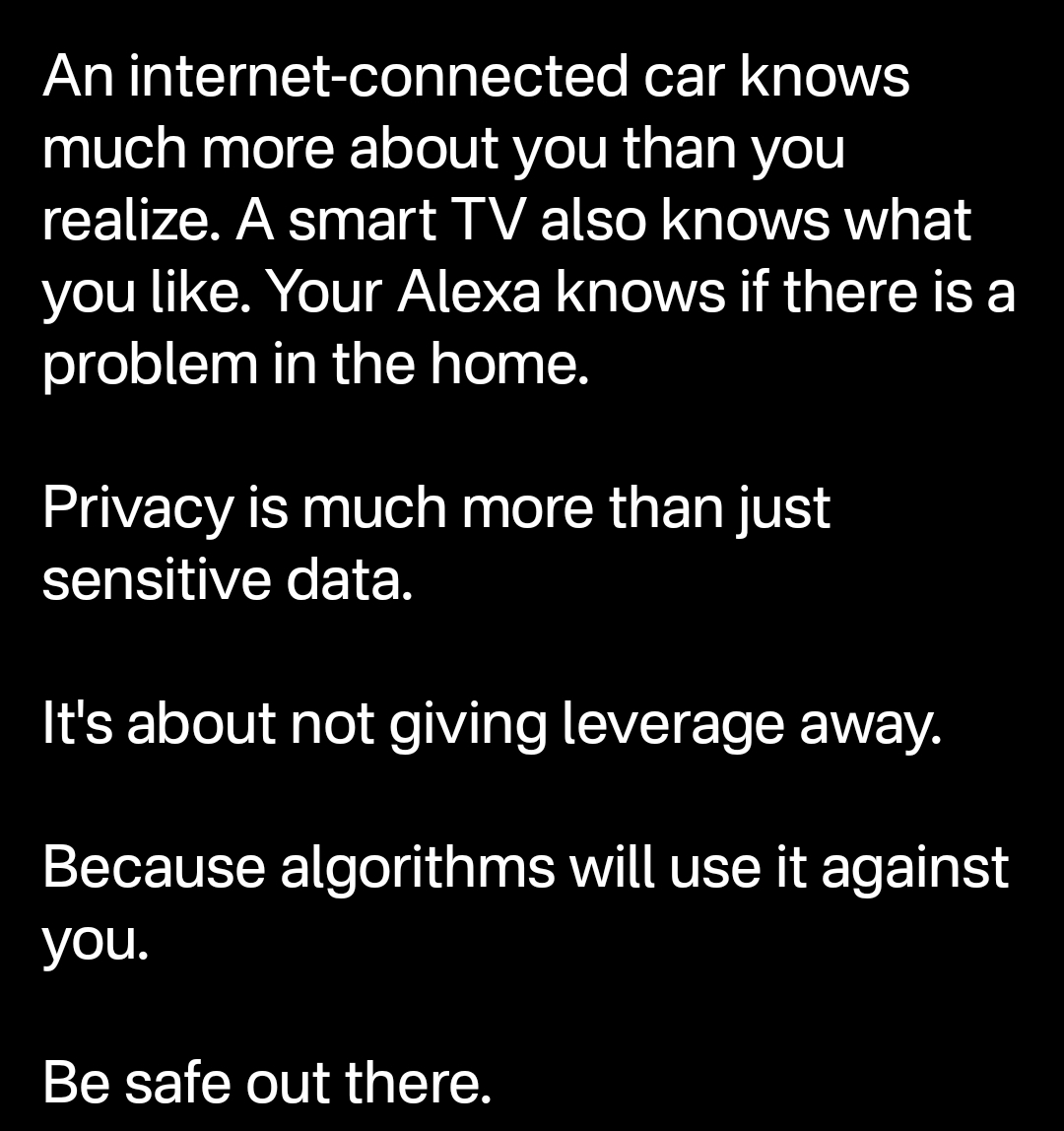
post text
Picture this:
- You type on Google “laptop won’t turn on”
- Google now knows you have a broken laptop and can estimate how desperate you are to fix it.
- Because it knows how desperate you are, it can increase shop prices proportionally.
You are going to pay the maximum they get you to pay.
That’s algorithmic pricing.
The more companies know about you, the more they can predict and sell how desperate you are to other stores out there.
An internet-connected car knows much more about you than you realize. A smart TV also knows what you like. Your Alexa knows if there is a problem in the home.
Privacy is much more than just sensitive data.
It’s about not giving leverage away.
Because algorithms will use it against you.
Be safe out there.

Was on some United flights recently with their new seatback media systems. The user experience is much better than Delta’s, but also, they actively harvest your information at your seat to build a “profile” on you, they even ask you to choose the type of flight profile you want like “relax” or “fun” etc. and it modifies the content filters for you.
The kicker though, was on the last flight, when the lighting was just right that I noticed they have a pinhole camera installed on the lower left of the display, along with some IR blasters to power a proximity sensor around a software button.
Blasters likely produce enough light that the camera can see you even when the screen is off/cabin is dark. So they’re likely building passenger profiles with visual data now as well, it’d be trivial to do facial recognition of “happy, sad, sleepy, etc” on top of capturing your movement in the seat. Did you just use your phone? Did you use the seatback screen? Are you reading a book? What food did you choose?
TIHI.
Guess I’m bringing tape with me on flights now.
*Since I looked it up for myself: How to Find Hidden Cameras on wikiHow. Specifically for IR lights, method 2 is particularly noteworthy.
I made a spitwad from a napkin, lacking other things. Will travel with a roll of electrical tape from now on.
Masking tape should work fine and is much easier to tear, fwiw.
Sure, but black on black may help the next passenger have some privacy.
Ah, true. Black masking tape?